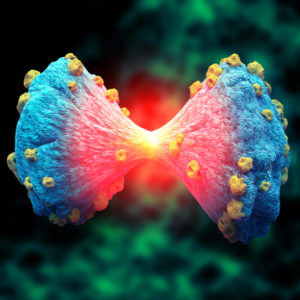Evolutionary Biology and Ecology of Cancer
13–17 June 2022
Wellcome Genome Campus, UK
Summary
Cancers are an evolving ecosystem of cells, and so knowledge of evolution and ecology is important to understand and clinically control cancer. Unfortunately, there are few cancer biologists trained in these disciplines. This course aims to bridge that gap, facilitate cross-fertilisation of ideas, and provide hands-on training in the application of tools from evolution and ecology to cancer.
This year’s programme will highlight various modelling (e.g. agent-based, game theory), ecological, phylogenetic and digital pathology tools used in cancer research. Participants will gain knowledge of evolutionary biology as applied to the somatic cell evolution in cancer, as well as the principles of ecology relevant to studying tumour microenvironments and immune selection. We also discuss the application of evo-eco principles in the design of novel clinical trials.
The course is suited to researchers interested in understanding cancer from an evolutionary and ecological perspective. Applications are invited from early-career scientists, including PhD students, postdoctoral fellows and new principal investigators.
Learning outcomes
After attending the 2022 course, participants will be able to:
- Describe the principles of evolutionary biology as applied to somatic cell evolution in cancer.
- Develop proficiency with the tools for measuring the evolution and ecology of tumours.
- Develop and apply mathematical, agent-based and game theory models to cancer.
- Apply the principles from ecology relevant to studying tumour microenvironments and immune selection, and apply these principles to digital pathology data.
- Learn how to use phylogenetic tools to infer cancer cell lineages and the demographic parameters of somatic evolution.
- Apply evolutionary and ecological approaches to the problem of therapeutic resistance.
- Develop expertise in designing clinical trials of evolutionary approaches to cancer therapy.
Programme
The course will start at approximately 12:00 on Monday, 13 June and close at approximately 13:00 on Friday, 17 June 2022.
Topics will include:
- Introduction to key evolutionary concepts
- Bioinformatics for cancer
- Fitting maths models to data
- Evolutionary game theory
- Agent-based modelling – hands-on session
- Immune selection
- Digital pathology and ecology
- Landscape ecology
- Phylogenetics – mutation rates, demographics, biogeography
- Designing clinical trials – evolutionary and ecological perspectives
- Communication
Extended tutorial sessions will provide students the opportunity to explore new cancer datasets and develop new collaborations with other students and faculty.
This is a residential course. All participants are requested to stay onsite for the full duration to benefit fully from discussions and interactions with the faculty and other students.
Instructors and speakers
Scientific programme committee
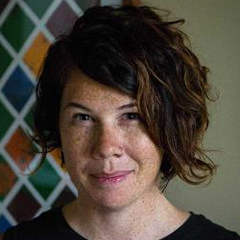
Amy Boddy
University of California Santa Barbara, USA
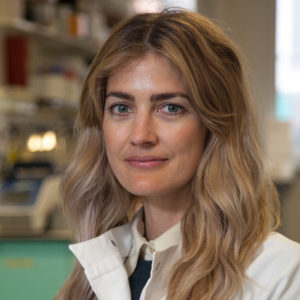
Kit Curtius
University of California San Diego, USA
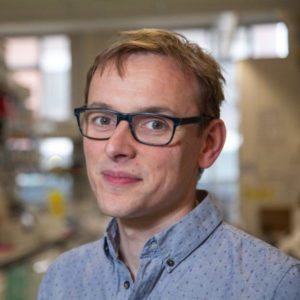
Trevor Graham
The ICR, UK
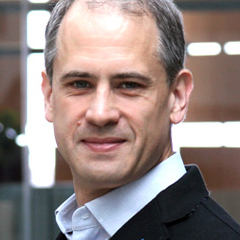
Carlo Maley
Arizona State University, USA
Keynote speaker
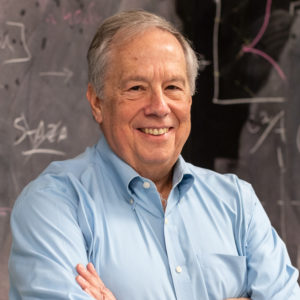
Robert Gatenby
Moffitt Cancer Center, USA
Confirmed speakers and instructors
Julia Bakker – The Institute of Cancer Research, UK
Juanita Bawagan – The Institute of Cancer Research, UK
Giulio Caravagna – University of Trieste, Italy
Luis Cisneros – Arizona State University, USA
Calum Gabbutt – The Institute of Cancer Research, UK
Robert Gatenby – Moffitt Cancer Center, USA
Weini Huang – Queen Mary, University of London, UK
Eszter Lakatos – Cancer Research UK Barts Centre, UK
Michelle Lockley – Cancer Research UK Barts Centre, UK
Diego Mallo Adan – Arizona State University, USA
Kateřina Staňková – Delft University of Technology, The Netherlands
Nick Trahearn – The Institute of Cancer Research, UK
Organisers – Wellcome Connecting Science
Zoey Willard, Conference & Events Organiser
Treasa Creavin, Scientific Programme Manager
Nagehan Ramazanoglu Bahadir, Scientific Programme Officer
How to apply
Application deadline: 12 April, 2022.
How to apply for the course
Places on this course will be awarded on merit. Applications are invited from early career scientists, including PhD students, postdoctoral fellows and new principle investigators. Please indicate in your application how you will benefit from attending this course.
The following will need to be provided:
- Qualifications and justification for attendance
- An outline of how the course is relevant to your current or future research plans
- Supervisor’s details (for PhD students and Post-docs): your supervisor will then receive an e-mail requesting a supporting statement to complete your application
The selection process will take place in April 2022.
If you have any problems with the online application process, please contact the course organiser.
Travel visas
Citizens of many countries can travel to the UK for a course without needing a visa.
Please check the UK government website for visitor information
https://www.gov.uk/standard-visitor.
Confirmed attendees requiring a letter to support a visa application should contact the course organiser.
Cost and financial assistance
| Cost | Accommodation / meals | |
| Course fee* | £860 | This is a residential course and the fee includes all accommodation and meals. |
*The course fee is subsidised by Wellcome Connecting Science Courses and Conferences and applies to non-commercial applicants. Please contact us for the commercial fee.
The fee will be requested once acceptance is confirmed.
Accommodation
This is a residential course. All participants will stay at The Hinxton Hall Conference Centre, Cambridge, for the nights of 13, 14, 15 and 16 June 2022.
Bursaries
Bursary deadline: 12 April, 2022.
A limited number of bursaries are available to attend this course (up to 50% of the fee).
Priority for bursaries will be given to PhD students and those from Lower and Middle-Income Countries (see list of countries here).
To apply for a bursary, please send the course organiser the following supporting documents:
- a letter stating financial need and explaining how you will benefit from attending the course
- a supporting letter from supervisor stating financial need
- CV
All required documents and a completed online application form must have been submitted before the deadline for your bursary application to be considered.
If you have any questions, please contact the course organiser.
We will be in contact with the result of your application shortly after the deadline.
Additional funding opportunities
Visit our support page for additional financial support currently available.
Extra accommodation
If you wish to book onsite accommodation either side of the course dates, please contact the Conference Centre directly.
Accommodation services phishing scam – please be vigilant. More information.
Testimonials
Feedback from the 2018 course:
“I thought the course was fantastic at giving a new perspective on solving problems within cancer research and it was pitched at a good level for cross-disciplinary understanding.”
“Everything was absolutely fantastic! I definitely appreciated the not-rushed aspect, with ample time for discussion.”
